Abstract
Many variations to the axillary approach to the brachial plexus have been described. However, the success rate varies depending on the approach used and on the definition of success. Recent work describes a new approach to regional anaesthesia of the upper limb at the humeral/brachial canal using selective stimulation of the major nerves. This report outlines initial experience with this block, describing the technique and results in 50 patients undergoing hand and forearm surgery. All patients were assessed for completeness of motor and sensory block. The overall success rate was 90 percent. Motor block was present in 80 percent of patients. Completion of the block was necessary in 5 patients. Two patients required general anaesthesia. The preponderance of ulnar deficiencies agrees with previously published data on this technique. No complications were described. Initial experience confirms the high success rate described using the Dupré technique. This technically straightforward approach with minimal complications can be recommended for regional anaesthesia of the upper limb.
Full text
PDF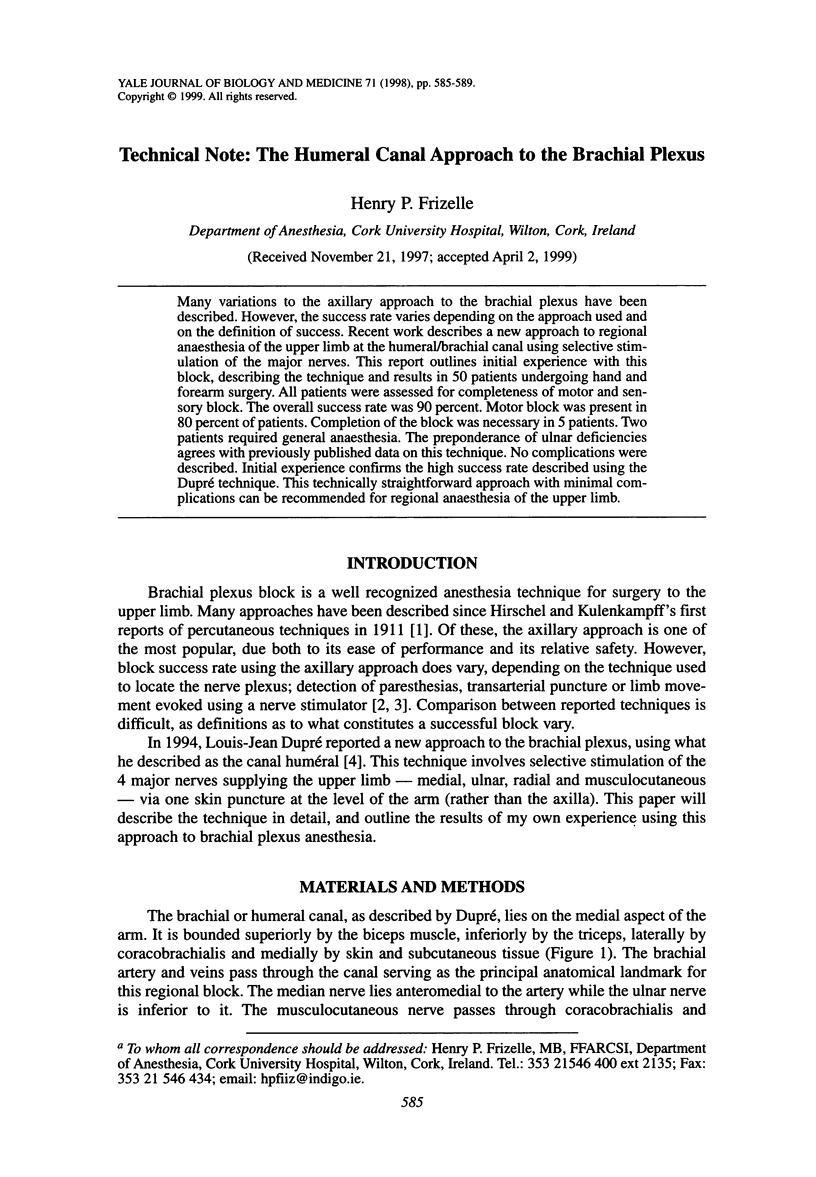
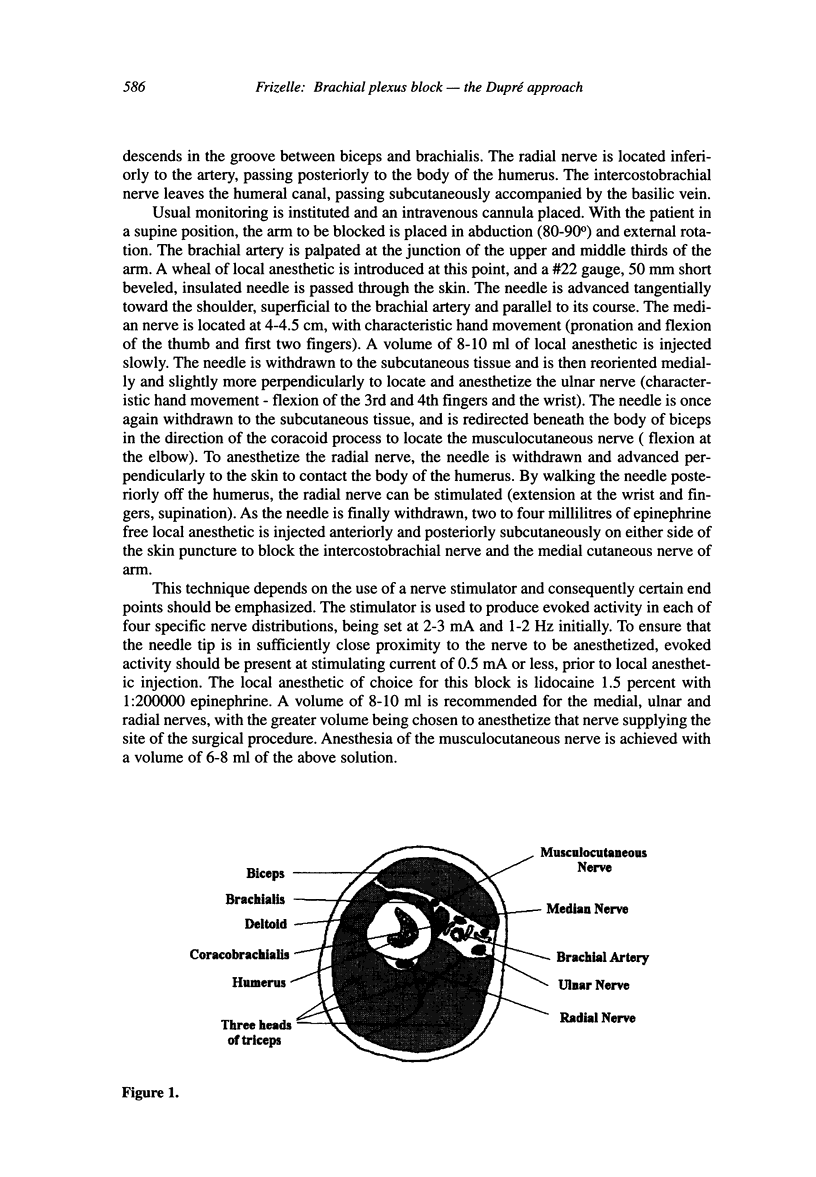
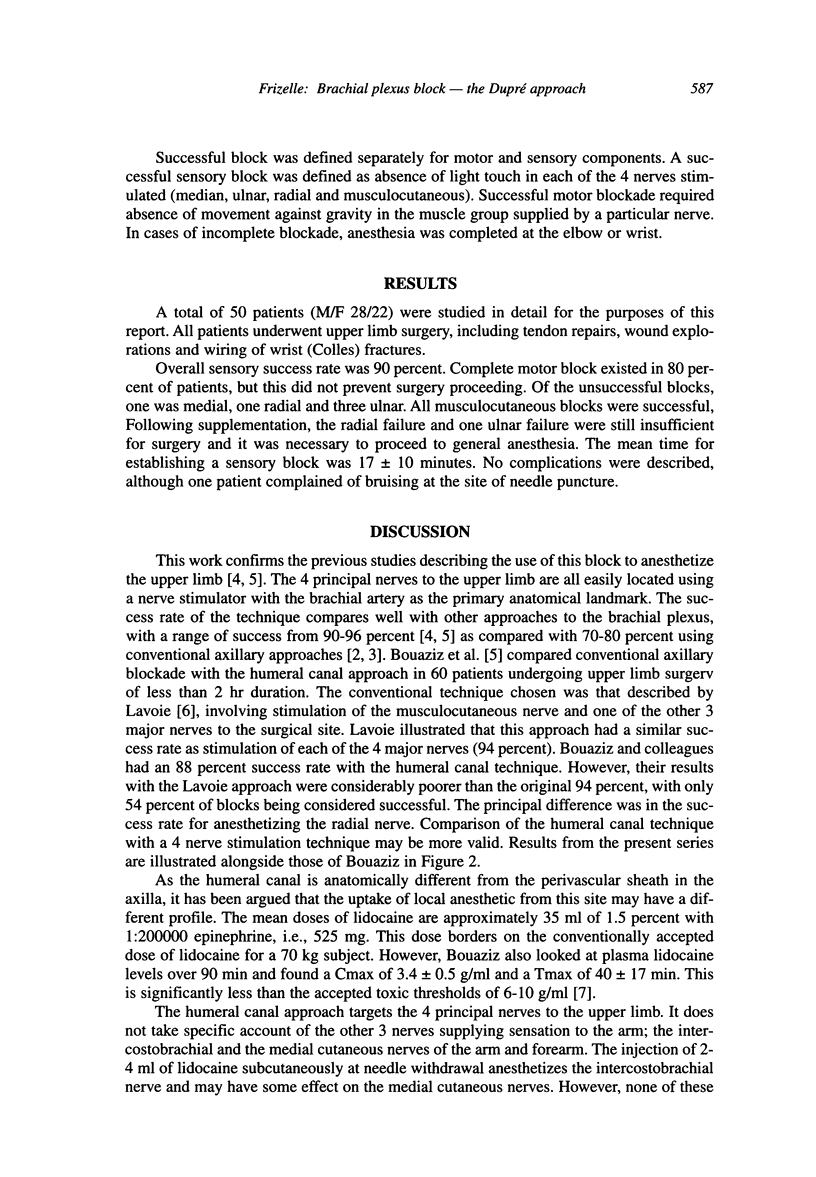
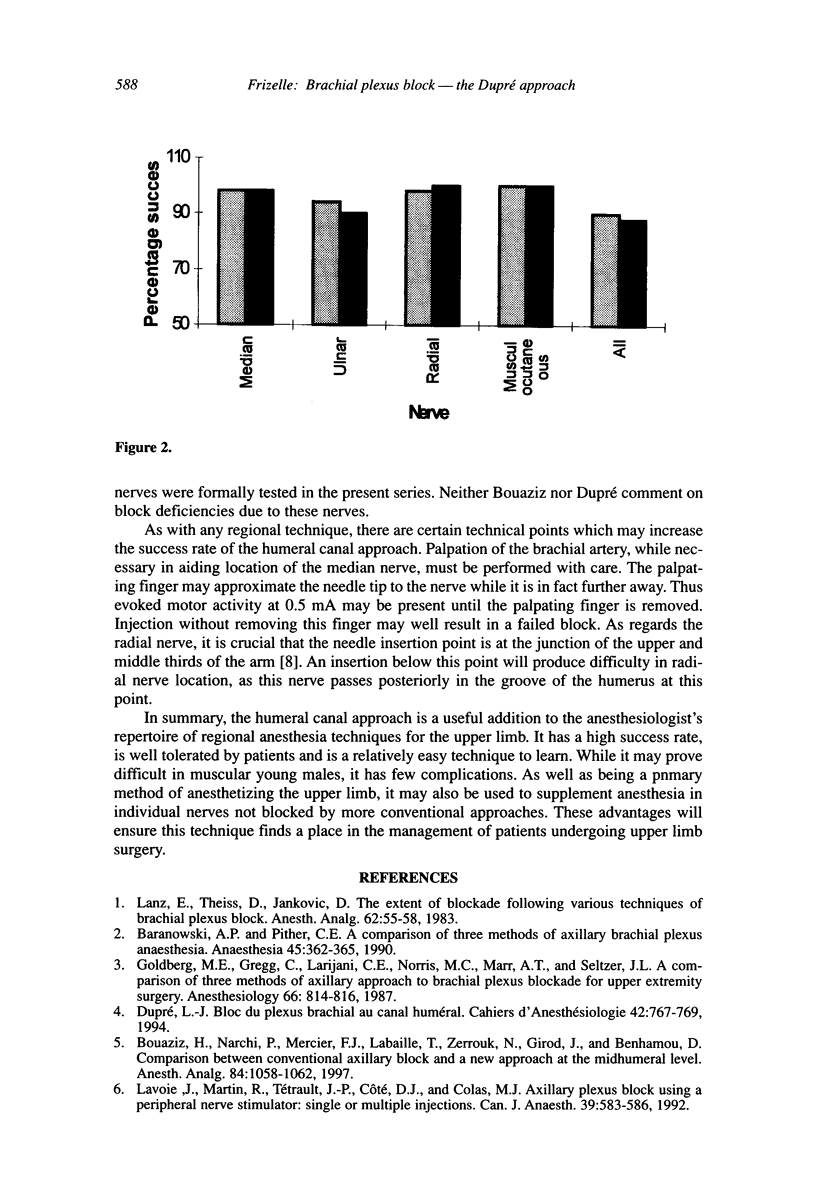
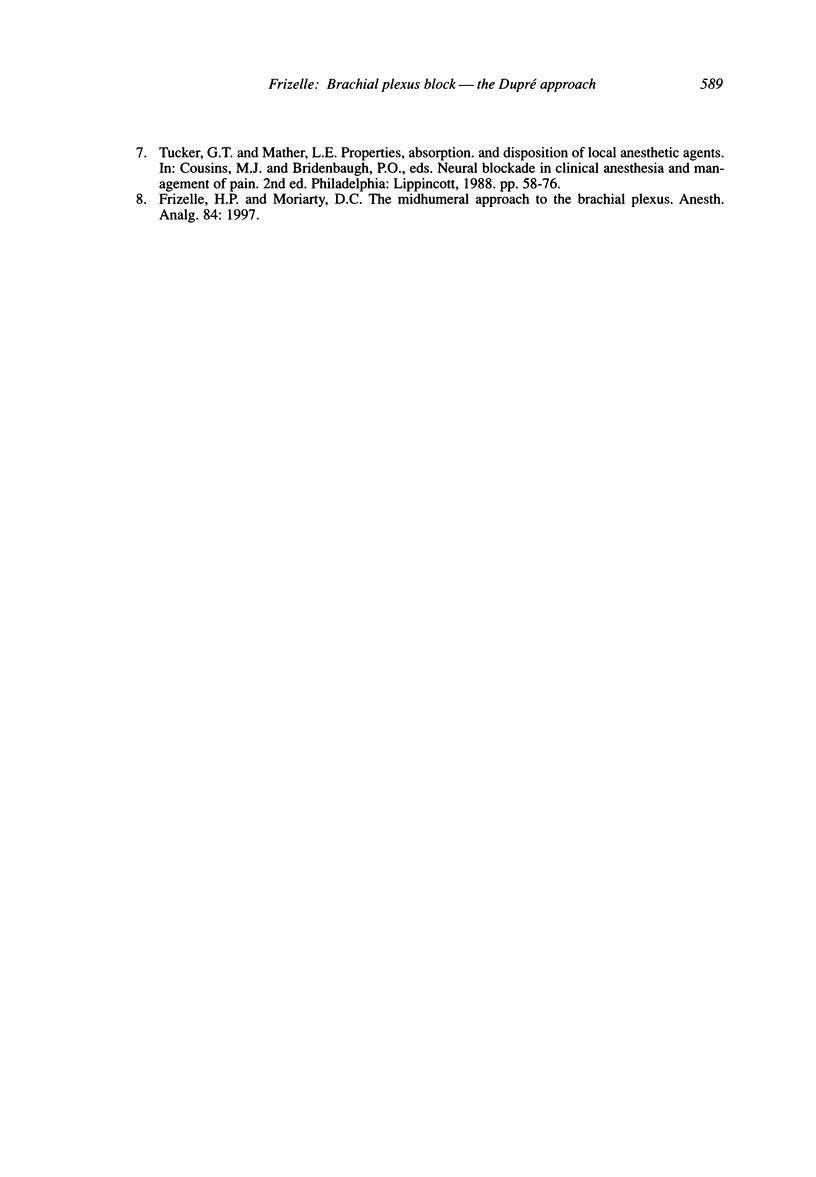
Selected References
These references are in PubMed. This may not be the complete list of references from this article.
- Baranowski A. P., Pither C. E. A comparison of three methods of axillary brachial plexus anaesthesia. Anaesthesia. 1990 May;45(5):362–365. doi: 10.1111/j.1365-2044.1990.tb14776.x. [DOI] [PubMed] [Google Scholar]
- Bouaziz H., Narchi P., Mercier F. J., Labaille T., Zerrouk N., Girod J., Benhamou D. Comparison between conventional axillary block and a new approach at the midhumeral level. Anesth Analg. 1997 May;84(5):1058–1062. doi: 10.1097/00000539-199705000-00019. [DOI] [PubMed] [Google Scholar]
- Dupré L. J. Bloc du plexus brachial au canal huméral. Cah Anesthesiol. 1994;42(6):767–769. [PubMed] [Google Scholar]
- Goldberg M. E., Gregg C., Larijani G. E., Norris M. C., Marr A. T., Seltzer J. L. A comparison of three methods of axillary approach to brachial plexus blockade for upper extremity surgery. Anesthesiology. 1987 Jun;66(6):814–816. doi: 10.1097/00000542-198706000-00017. [DOI] [PubMed] [Google Scholar]
- Lanz E., Theiss D., Jankovic D. The extent of blockade following various techniques of brachial plexus block. Anesth Analg. 1983 Jan;62(1):55–58. [PubMed] [Google Scholar]
- Lavoie J., Martin R., Tétrault J. P., Côté D. J., Colas M. J. Axillary plexus block using a peripheral nerve stimulator: single or multiple injections. Can J Anaesth. 1992 Jul;39(6):583–586. doi: 10.1007/BF03008322. [DOI] [PubMed] [Google Scholar]


